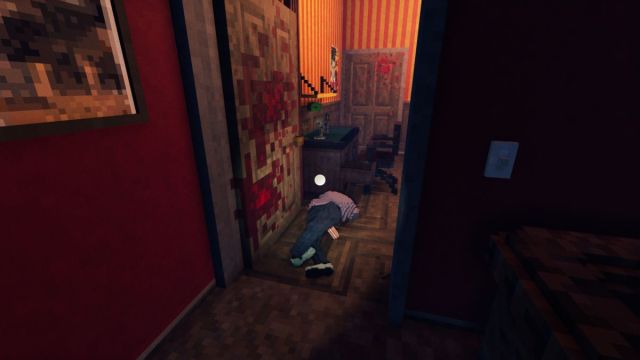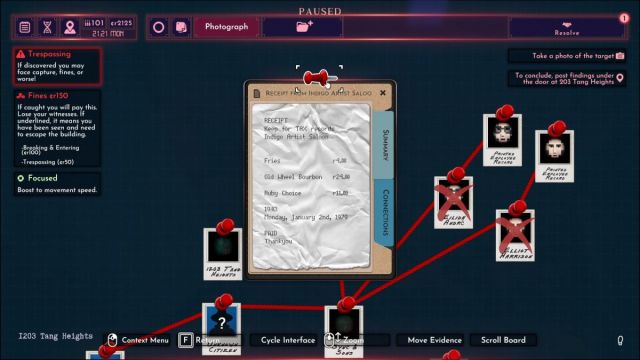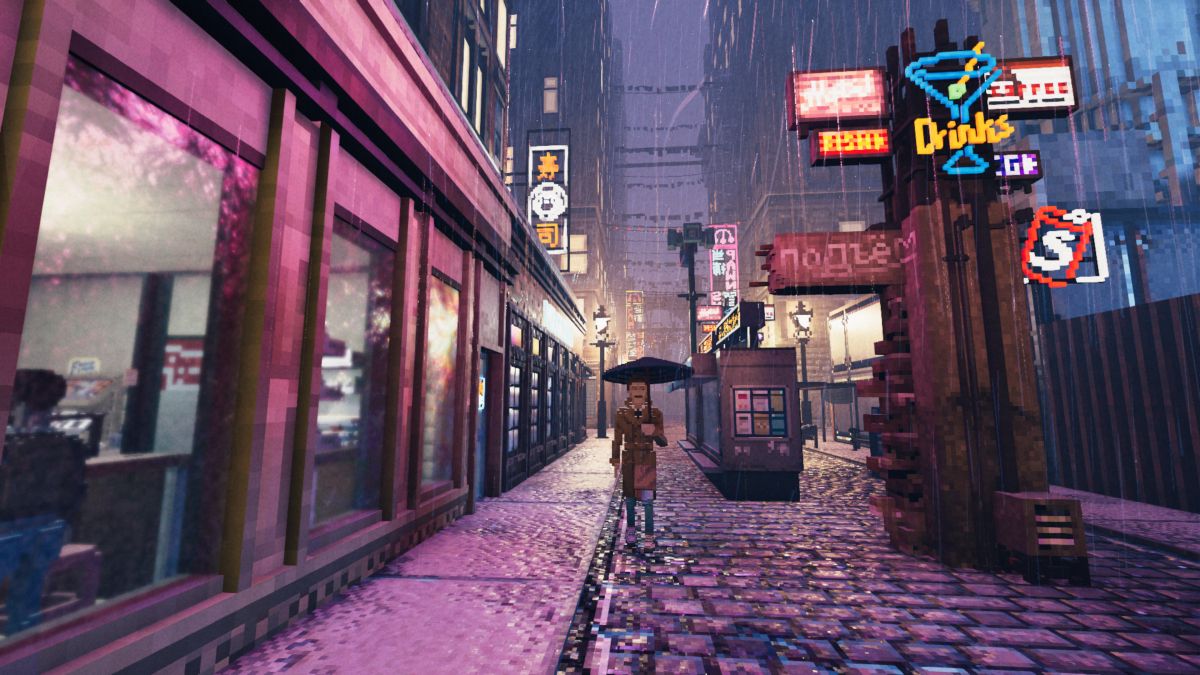All the tools, and all the terrifying freedom
Detective games may seem like a narrow genre, but they can cover a lot of ground. The simple set-up of crime, mystery, and whodunnit makes for a straightforward, tangible objective for players to uncover. Shadows of Doubt squarely falls in the hardboiled detective genre. But like many detectives, it’s not without a few factors that set it apart.
Shadows of Doubt, from developer ColePowered Games and publisher Fireshine Games, is pretty ambitious. It’s a detective game for sure; the beginning of its Steam Next Fest demo pans over a corporate-owned future dystopia where neon glimmers overhead and where your hardboiled detective avatar decides to take up a new case. The tutorial prompts have you go through investigative motions that feel rewardingly granular: finding a name, searching for the name in a directory, locating an address, and heading out the door.
Of course, everything shifts in tone when you discover a body. And it’s from here where Shadows of Doubt starts to show its full hand. It’s not just about finding clues but also sneaking around, manipulating objects, reading the room, and navigating an open world. There is a guilty party inside this voxel city, and you’ve been given the tools to sift. But Shadows of Doubt doesn’t really hold back on what information it offers, either.
Needles in haystacks
I’ve been fascinated with the virtual sleuthing arena for a while now. Like a puzzle game, you can see the hand of the developer as they form the backbone of the mystery. Some games give you a neatly guided framework, in which you need to make a series of deductions informed by clues you’ve uncovered; in other cases, things are much more open, and there’s an intangible tension between the unknown and the known. In something like Return of the Obra Dinn, you’re simply given tools and information. How you get there, and what methodology you create to do so, is up to you.

Shadows of Doubt goes for a similar “figure it out yourself” style, with an immersive sim-inspired approach. While playing through a good chunk of the 90 minutes allotted for the demo, it felt like playing a noir detective in the world of Deus Ex. Discovering information is crucial to figuring out the next steps you could take in the case. But that search is player-driven, aside from optional tutorial prompts the demo can give you. Do you want to investigate the last phone number your murder victim dialed? Or do you want to look into their place of work? Or maybe there’s still a set of prints somewhere in this home, one that doesn’t match your victim, that could shine a new light on the case.
The freedom to find your own leads can feel intimidating. As I loaded up the world for the first time, I wondered why the bar was informing me of the world it was making, and the population it was generating. Not long after opening a directory and stepping out onto the street did I grasp it: there are lots of people, lots of rooms, and lots of buildings. This doesn’t feel like a direct obfuscation, but it does mean that you’ll need to be your own sieve for determining what to do. And likewise, exhaustively chasing leads without forethought may not be wise.
A donut within another donut
This is where the case board comes in. ColePowered Games is kind enough to offer a screen where you can pin information you’ve found. Anything from receipts and addresses to little details, like a specific item or fingerprint, can be pinned and attached with red string. While the board will update as you uncover more information, it won’t make logical jumps for you. Uncovering someone’s ID, for example, may help fill in some basic profile information. But you have to figure out whether those details are important or not.
Because of this, my first crime scene felt a little overwhelming. I needed to search the body, and pin down a time of death. There was a mess all around the room, and I had to try and preserve its found state. Were certain drawers opened or closed when I walked in? Where is their wallet? And why is something important in the trash?

I kept searching and searching, hoping to find solid leads that could bring me to my next investigation. Yet I was scared I’d overlook something, in the sea of clues laid out before me. And all the while, I’m constantly listening.
This is where Shadows of Doubt really won me over: the tension. See, there are different kinds of quiet. Silence can be peaceful and serene. Or it can be intimidating and nerve-wracking. As I searched the apartment, the quiet permeated my every move. I was, in essence, trespassing; and into the scene of an unreported murder, no less. Getting information is valuable, but could I risk getting caught?
Murder, she wrote
After roughly half an hour of searching, following clues and investigating leads, sneaking around in ducts and scanning for prints, I was pretty floored. What ColePowered Games is working on is ambitious as hell, and if they nail it, Shadows of Doubt could be an immensely impressive detective’s sandbox. Mixing all the elements of immersive sims, mysteries, and a world that moves on its own routine around the player could make for a really good mystery machine.
It’s not always apparent just from a demo, but I do think if you like sneaking around, solving mysteries, and connecting thumbtacks with red string, Shadows of Doubt is worth a shot. The demo is available as part of Steam Next Fest right now up through February 13, and the full game is aiming for an early 2023 launch.








